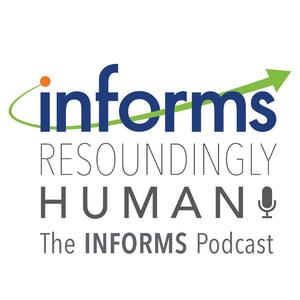Published: June 25, 2020

As the country begins to reopen, we are seeing restrictions put in place to counteract the spread of the COVID-19 pandemic begin to loosen. I think many of us are battling conflicting emotions: excitement at the idea of a return to something closer to normal as well as uncertainty and anxiety, with each state reopening at a different rates and even inconsistencies in requirements regarding the use of face masks. And with some states seeing new spikes in infection rates, it begs the question, in a desire to return to normal are we moving too quickly, or perhaps simply going about reopening the wrong way. Could there be a different, more balanced approach, one based on operations research?
For this episode I am joined by Tory Chen, professor with the Center on Stochastic Modeling, Optimization, & Statistics (COSMOS) in the Department of Industrial, Manufacturing, and Systems Engineering at the University of Texas at Arlington. We will be discussing her work to create a balanced approach to reopening that still prioritizes the health and safety of citizens, especially those who continue to be at a higher risk of infection.
I saw two genuine conflicting objectives: minimizing fatalities and reviving the economy. The lockdown may have minimized fatalities, but at the detriment of the economy. Now re-opening is reviving the economy, but possibly risking higher fatalities. This is classic operations research. Still no one seems to be looking at how to balance these objectives. As far as I can tell, re-opening strategies are arbitrary and entirely different from state to state. So we are all living in a huge ad hoc experiment, except that actual lives are at stake.
Interviewed this episode:

Related Episodes
Episode Transcript
Contact us to request transcript.
Want to learn more? Check out the additional resources and links listed below for more information about what was discussed in the episode.
Center on Stochastic Modeling, Optimization, & Statistics (COSMOS)
